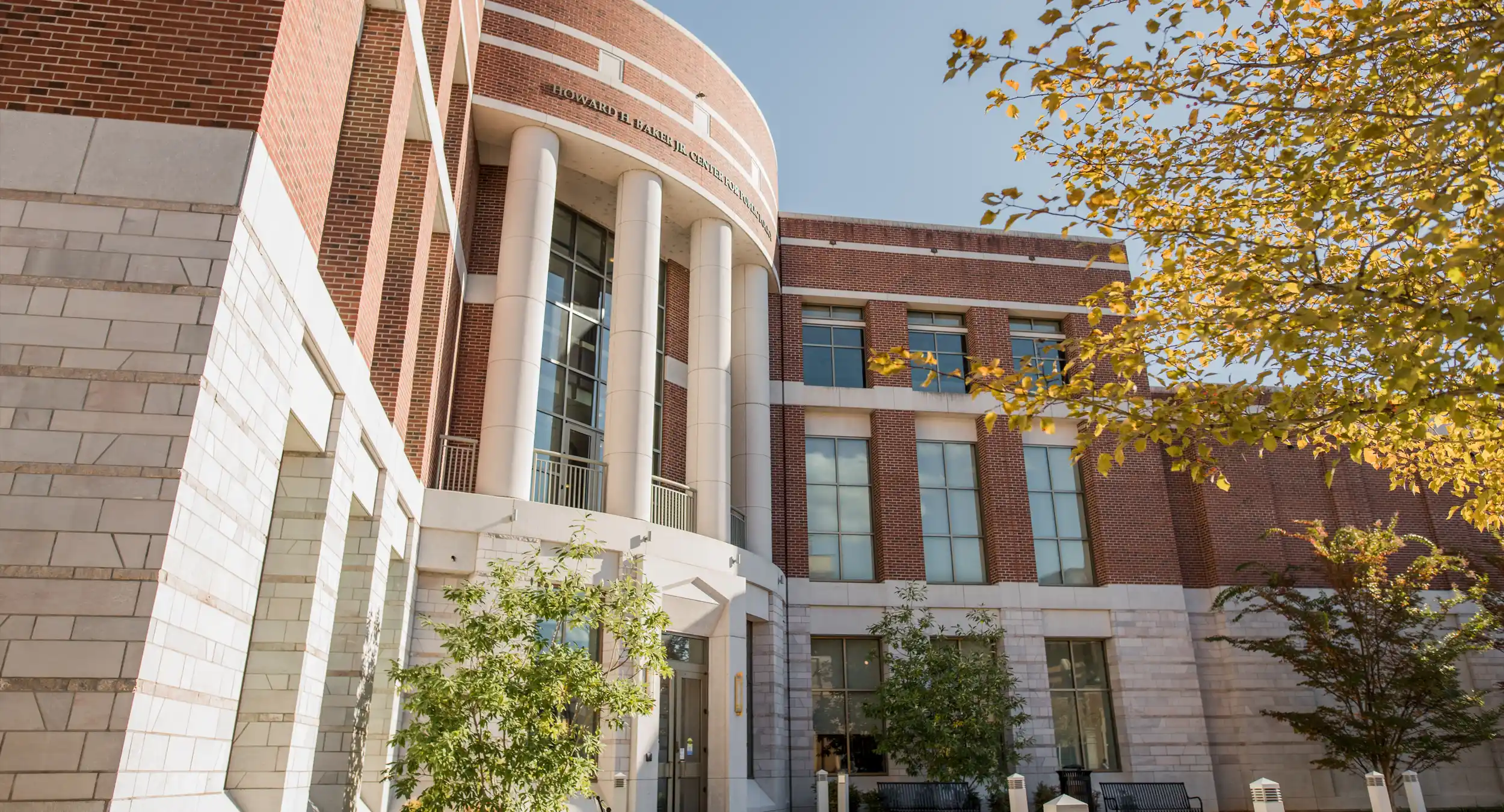Baker School’s Curriculum Prepares the Next Generation of Public Leaders
The Howard H. Baker Jr. School of Public Policy and Public Affairs (Baker School) grew out of a vision to establish a public policy school at the University of Tennessee, Knoxville with national reputation for graduating skilled public problem solvers who are prepared to take leadership roles as public administrators, public servants, policy analysts, or candidates for public office in the next ten years. The Baker School prepares students to be part of the solution, and that all begins in the classrooms.
The Baker School is dedicated to continuing the legacy of our namesake, Senator Howard H. Baker Jr., by teaching students the value of being an eloquent listener, consummate learner, and courageous leader. Those principles are the framework of our curriculum.
In building the curriculum, the Baker School was committed to fostering a rich environment where ideas are investigated with academic rigor, conventional wisdom is challenged, and diverse perspectives are encouraged.
The Bachelor of Science in Public Affairs degree program was designed to teach students the art and science of public problem solving, preparing them for various careers, such as elected officials or leading civic-minded organizations. The unique and collaborative curriculum encourages exploration across policy fields, including law, energy, health, national security, and the environment.
The Baker School recognized the need for systemic approaches to understanding the complexities of public problems and created an interdisciplinary environment that allows knowledge from various fields. The undergraduate program brings together coursework from across the University in an intellectually challenging and collaborative setting.
Baker Students begin with foundational courses in civics and government delivered through the Institute of American Civics. As they progress through the curriculum, students expand their study to areas including data analytics, economics, and communications. The degree program was built to be flexible and lend itself to exploring other academic interests through our concentrations. One concentration is required, and students are encouraged to complete more than one if their schedule allows. Concentrations include economic and community development, energy policy, environmental policy, government relations, health policy, law and policy, national security, policy analytics, political communication, and public management. Students graduate with a vast potential career pool through our degree program and concentrations.
The curriculum wraps up with a professional development course, Beyond Baker, which offers career preparation, professional development, networking opportunities, and a capstone course or internship. The Baker School also offers three minor programs to complement the major: public affairs, policy analytics, and American civics.
To best serve as a nexus between academic research and practical problem solving, the Baker School kept the student programs that it held prior as the Baker Center, continuing to provide research and educational opportunities in and about the real world.
These programs and internships are invaluable career preparation opportunities that will help students learn about themselves, gain professional experience, and offer a real-world look at public policy and public affairs in action. Local government interns, Institute Fellows, the Tennessee Legislative Internship Program, and the Congressional Internship Program are just a few of the experiential learning opportunities embedded within or available to enhance the Baker Student experience.
